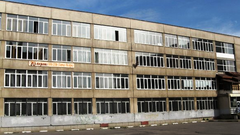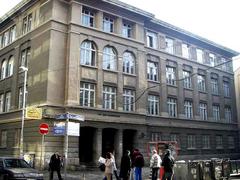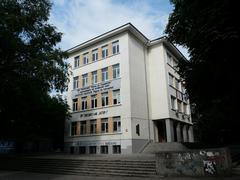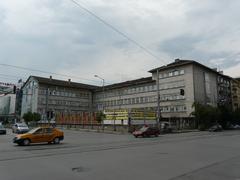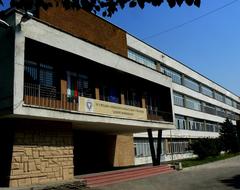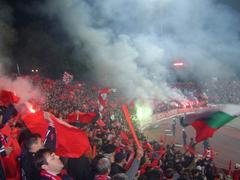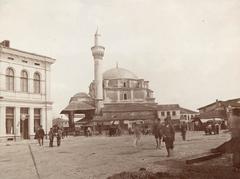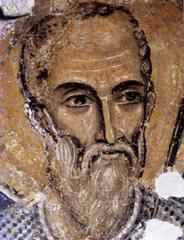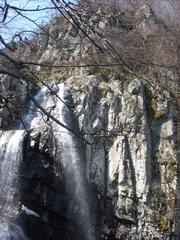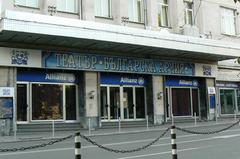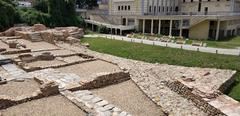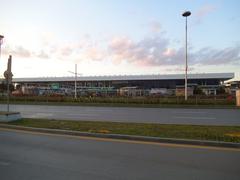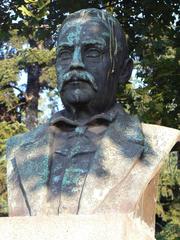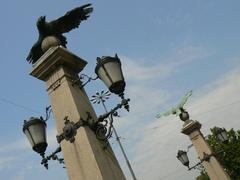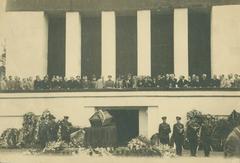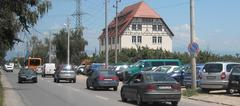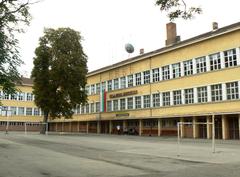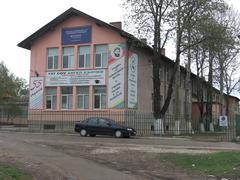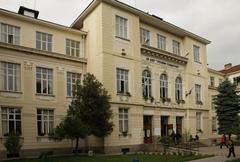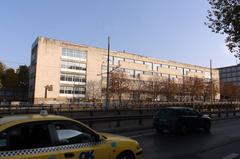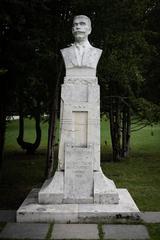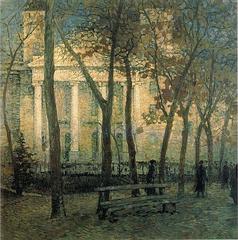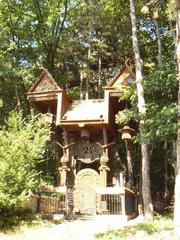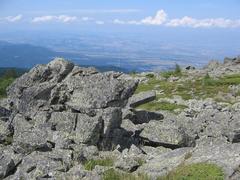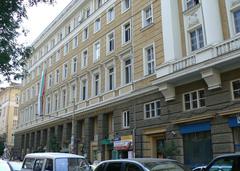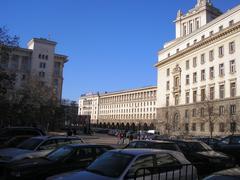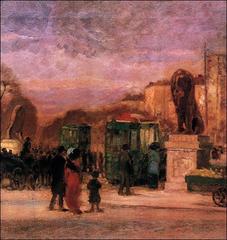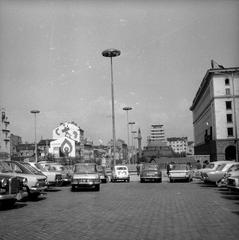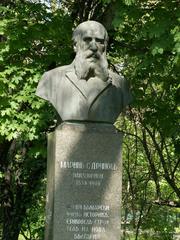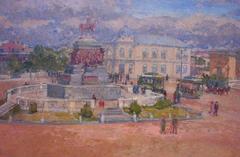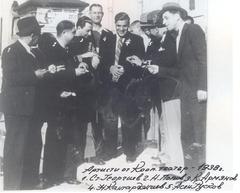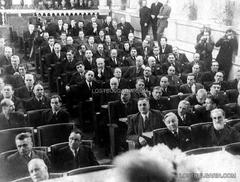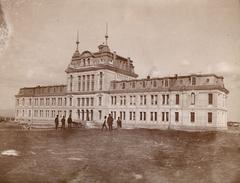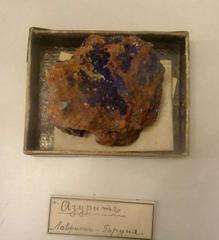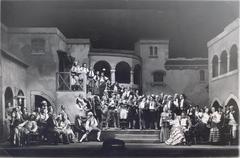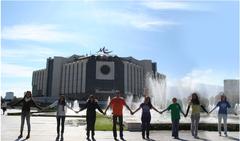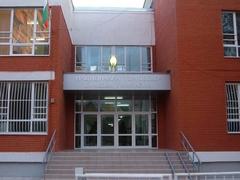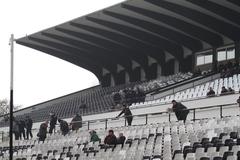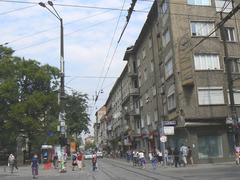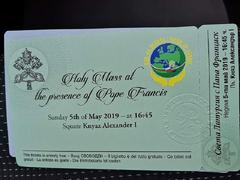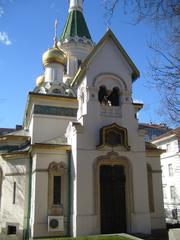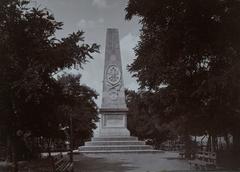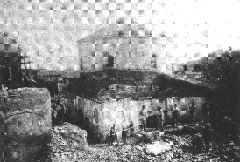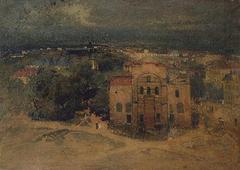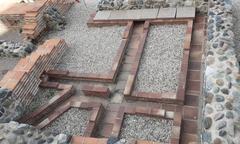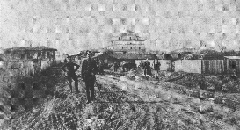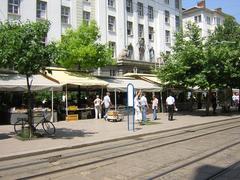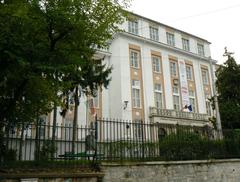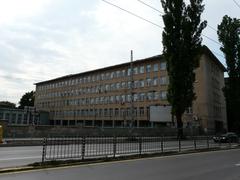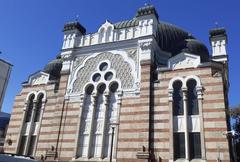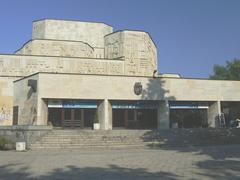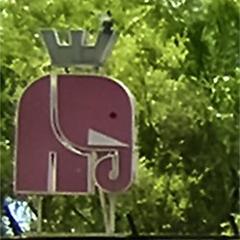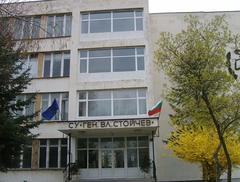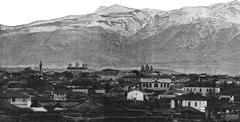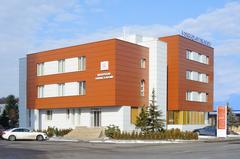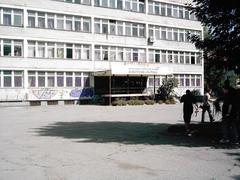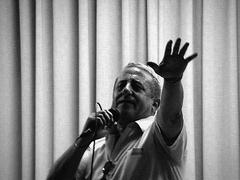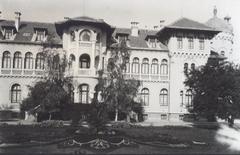National School of Dance Art Sofia: Visiting Hours, Tickets, and Complete Guide
Date: 14/06/2025
Introduction
Situated in the cultural heart of Sofia, Bulgaria, the National School of Dance Art (NUTI/NSDA) is a cornerstone of Bulgaria’s performing arts scene and a guardian of the nation’s dance heritage. Founded in 1951, this institution has evolved from the State Ballet School into a vibrant center for classical ballet, Bulgarian folk, and modern dance. Its history, curriculum, and ongoing achievements intertwine with the broader story of Bulgaria’s cultural development, making it a must-visit destination for cultural tourists, dance aficionados, and anyone eager to explore Sofia’s artistic legacy (Vagabond; BTA).
This guide offers a comprehensive overview of the school’s history and significance, detailed visitor information (including hours, ticketing, and accessibility), and practical tips for making the most of your visit. It also highlights nearby attractions, answers frequently asked questions, and provides resources for further exploration.
Historical Background and Evolution
The National School of Dance Art was established on February 5, 1951, as the State Ballet School—a response to both Bulgaria’s growing interest in professional dance and the post-war European movement toward state-supported arts education. Initially focused on classical ballet, its curriculum was modeled after the Russian and French traditions. The school quickly built a reputation for excellence, attracting talented students nationwide (Vagabond; BTA).
In 1956, the curriculum expanded to include Bulgarian folk dance, and the institution was renamed the State School of Choreography. This move not only diversified the artistic offerings but also played a crucial role in preserving Bulgaria’s intangible cultural heritage during a period of rapid modernization (Human Kinetics). In 2004, in response to global trends, a modern dance program was introduced, and the school adopted its current name, reflecting its broader mission.
Currently, NUTI is the only institution in Bulgaria—and one of few in the Balkans—offering comprehensive professional training in classical ballet, Bulgarian folk, and modern dance. Since 2001, it has been recognized as a national school under the Ministry of Culture, further cementing its status as a premier arts institution (BTA).
Curriculum and Educational Approach
NUTI offers an eight-year program (grades 5–12), combining a rigorous general education with intensive dance training. Students specialize in one of three main tracks—classical ballet, Bulgarian folk dance, or modern dance—while also receiving cross-disciplinary instruction:
- Classical Ballet: Emphasizes technique, repertoire, duet and character dance, and history.
- Bulgarian Folk Dance: Focuses on regional dances, folklore repertoire, and modern influences.
- Modern Dance: Covers contemporary techniques while integrating classical and folk elements.
All students study dance theory, history, methodology, composition, and improvisation. The curriculum is shaped by international pedagogical influences—French, Russian, and Danish ballet traditions—and is enriched by regular collaborations with renowned choreographers and guest teachers (BNR).
Achievements and Cultural Significance
NUTI’s impact on Bulgarian and Balkan dance culture is significant. The school has produced generations of professional dancers and choreographers, many of whom have joined the ranks of the Sofia Opera and Ballet, Arabesque Ballet, Filip Kutev Ensemble, Pirin, Trakia, and other renowned troupes. Its alumni regularly achieve international recognition, winning awards at prestigious competitions in Varna, Paris, Moscow, Osaka, and more (Vagabond; BTA).
The school’s dedication to Bulgarian folk dance safeguards the country’s intangible heritage and ensures that traditions like the horo remain vibrant and relevant. NUTI has received numerous honors, including the Order of Cyril and Methodius (First Class), Crystal Lyre, and Golden Lyre awards, and holds memberships in European and international cultural organizations.
Visitor Information
Location
- Address: 48 Shipchenski Prohod Blvd, Sofia, Bulgaria
- Easily accessible via public transport, taxi, or on foot from Sofia’s city center (Vagabond).
Visiting Hours
- General Hours: Monday to Friday, 9:00 AM – 6:00 PM
- Performances & Special Events: Check the official website or Sofia events calendar for specific schedules.
Tickets and Admission
- Admission for casual visits is generally free, but tickets are required for public performances and workshops.
- Performance Tickets: 10–30 BGN, depending on the event.
- Workshops/Cultural Experiences: 20–50 BGN.
- Purchase tickets online via the official website, by phone (+359 2 892 91 80), or at the box office.
Guided Tours and Workshops
- Occasional guided tours and hands-on workshops are available, covering Bulgarian folk dance, ballet, and modern dance (Veronika’s Adventure).
- Advance booking is recommended, especially for groups or special events.
Accessibility
- The building offers wheelchair access, ramps, and accessible restrooms.
- For specific needs, contact the school administration in advance.
Facilities
- 18 professional dance studios, a performance hall, exhibition spaces, and a specialized library.
- Visitors are welcome to enjoy exhibitions and, when available, open rehearsals.
Nearby Attractions
- Alexander Nevsky Cathedral
- National Art Gallery
- Ivan Vazov National Theater
- City Garden
- All within easy reach for those looking to experience Sofia’s cultural and historical landscape.
Visitor Experience and Practical Tips
- Dress Code: Comfortable attire is suggested for workshops; smart-casual for performances.
- Language: Bulgarian is primary, but English is widely spoken for tours and events.
- Photography: Always ask permission before photographing classes or performances.
- Booking: Reserve tickets and workshops in advance, particularly during peak tourist seasons.
- Combine Visits: Plan to see other nearby historical landmarks for a richer cultural experience.
Visual and Multimedia Resources
Explore virtual tours, photo galleries, and performance highlights on the school’s website and official social media channels. These resources offer a glimpse into the daily life and artistic achievements of NUTI’s students and faculty.
Frequently Asked Questions (FAQ)
Q: What are the visiting hours for the National School of Dance Art?
A: Monday to Friday, 9:00 AM – 6:00 PM; performance and event times vary.
Q: How can I buy tickets for performances?
A: Purchase via the school’s website, by phone, or at the box office.
Q: Are workshops suitable for beginners?
A: Yes, workshops cater to all skill levels and ages.
Q: Is the school accessible for visitors with disabilities?
A: Yes, with wheelchair access and accessible amenities throughout the building.
Q: Can I combine my visit with other Sofia historical sites?
A: Absolutely—NUTI is centrally located and close to many of Sofia’s major cultural landmarks.
Monument of the Bulgarian National Revival: Visitor Guide
While in Sofia, consider visiting the Monument of the Bulgarian National Revival—an emblematic site commemorating Bulgaria’s struggle for independence and national identity.
- Location: Central Sofia, near Serdika metro station.
- Hours: Daily, 9:00 AM – 7:00 PM.
- Admission: Free.
- Accessibility: Ramps and paved paths for wheelchair users.
- Guided Tours: Available in multiple languages for a small fee.
- Nearby Sites: Alexander Nevsky Cathedral, National Archaeological Museum, City Garden.
Tip: Visit early or on weekdays for a quieter experience. Guided tours provide valuable historical context.
For more, see the official Sofia tourism website and related pages:
Alexander Nevsky Cathedral Visiting Hours | National Archaeological Museum Tickets
Summary and Final Tips
The National School of Dance Art is a beacon of Bulgaria’s artistic excellence, nurturing generations of dancers while preserving and promoting the nation’s unique cultural legacy. With its central location, state-of-the-art facilities, and dynamic event calendar, NUTI offers a rewarding experience for visitors seeking to immerse themselves in Bulgaria’s dance and cultural traditions (Vagabond; BTA; BNR; Veronika’s Adventure).
Plan your visit:
- Check nutibg.com for the latest hours and ticketing.
- Book performances and workshops early.
- Explore Sofia’s cultural landmarks for a memorable artistic journey.
Sources and Further Reading
- National School of Dance Art in Sofia: History, Visitor Information, and Cultural Significance
- February 5, 1951: National School of Dance Arts is Established in Sofia
- National School of Dance Art in Sofia Keeps Abreast of Time
- Dance in Bulgarian Culture
- Discover Bulgaria with Dance in Sofia, Bulgaria
- Official National School of Dance Art Website
